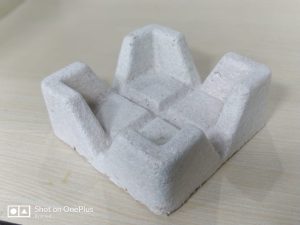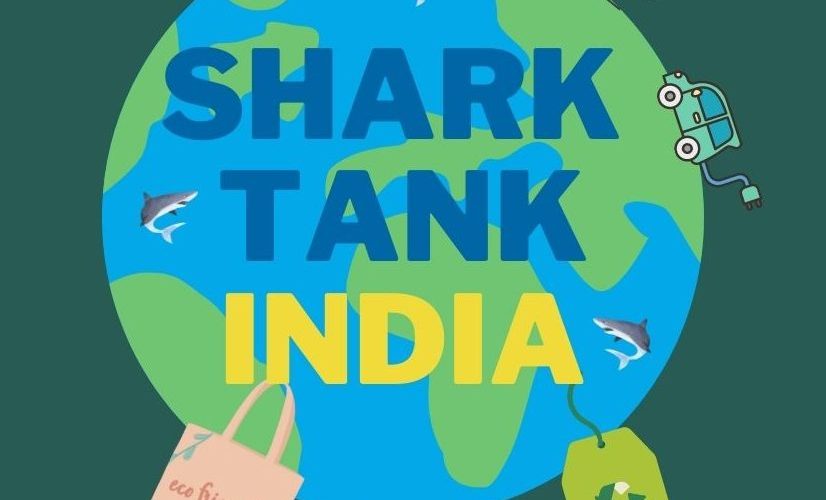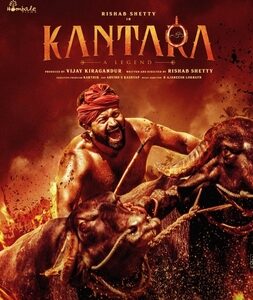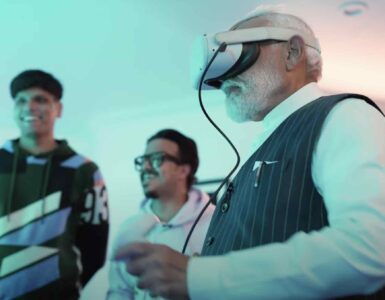Like Seasons 1 and 2, Shark Tank Season 3 also featured many startups working in the environmental space.
As we have observed on Shark Tank India, there is a growing focus on eco-friendly businesses.
The first pitch of this year’s season featured a company making eco-friendly daily-use products. A few weeks later, an entire episode dedicated to ecopreneurs was telecasted. The special episode featured three climate-focused companies: Cool The Globe, Canvaloop, and Digital Paani.
One episode even featured two circular fashion companies, Flyrobe and Candid Men, in a match-off, where they made the pitches one after the other.
Overall, Shark Tank India Season 3 saw 157 pitches and as we have listed below, there were 17 pitches from the environment and sustainability space. Out of these seventeen, more than 50 per cent got investments, including 3 all-shark deals.
The Shark Tank has transformed how Indians view entrepreneurship and in a subtle way has started demonstrating the importance of a sustainable lifestyle and a need for climate action.
Here are the green startups from Shark Tank India that put sustainability and the environment at the forefront.
Honest Home Company
Founder: Mayank Pratap Sisodia
Plastic packaging is a growing menace, causing landfills to overflow, choking rivers, and threatening natural ecosystems.
Honest Home Company makes plastic-free products for everyday use, like floor cleaners, dish wash, hand wash, tissue paper, kitchen towels, facial tissue paper, and food wrapping paper. Products like floor cleaners, dishwashing, and hand washing are available in powder format in paper packaging, which, when mixed with water, can be made for use.
After various stints at multiple FMCG companies including an Ayurveda startup, Mayank started Honest Home Company in 2019 from a small town Dhampur in Uttar Pradesh.
The products of the company are available offline and online marketplaces and quick commerce platforms. The company is constantly growing in terms of sales and did sales of 49 million in FY 21-22 and Rs. 138 million in FY 2022-23 with a 6 million profit.
Amit Jain invested Rs. 10 million for 3% equity plus 1% royalty until Rs. 15 million is recouped against the ask of 10 million for 2% equity.
Canvaloop Fibre
Founders: Shreyans Kokra and Nandini Kokra
Clothes manufacturing is an environment-draining business with multiple factors like high water usage, energy consumption, and waste.
Making one pair of cotton clothing requires approximately 9000 litres of water. In addition, synthetic clothing like nylon and polyester are non-biodegradable fabrics which release microplastics in oceans.
We have written about sustainable fabrics, you can read the article here.
Canvaloop Fibre is a bio-material science company that uses agricultural waste to create high-quality, eco-friendly fibres for fashion, apparel, and home textiles. The kind of plant-based materials they use to make fibres are hemp, banana, and pineapple leaves.
The Surat-based company sources the raw materials from farmers (domestic and international), extracts the fibres using a mechanical process and converts them into textile-grade fibres. These sustainable fabrics are then sold to businesses and companies that stitch them into garments.
As per the company’s claims at the show, their fabrics consume 99 per cent less water, 87 per cent less emissions and utilise 82 per cent less energy. Canvalpp founders mentioned that they did sales of 32 million in FY 2022-23 and were expecting to do 80 million in FY 2023-24.
This was one of the three all-shark deals amongst all environment-friendly startups at Shark Tank India. Aman Gupta, Anupam Mittal, Azhar Iqubal, Namita Thapar, and Radhika Gupta invested Rs. 20 million for 4% equity for Rs. 500 million valuation against the ask for Rs. 10 million for 1.33% equity.
Cool The Globe
Founder: Prachi Shevgaonkar
Cool The Globe helps individuals reduce their carbon footprint. The company’s mobile app shows different eco-friendly ways through which people can reduce their emissions from their lives.
At the time of the show, the app was only available for individuals, but the company was working to enable it for organisations and communities to encourage collective climate action.
Aman Gupta and Radhika Gupta invested Rs. 25 Lakhs for 8% equity against the ask for Rs. 2.5 million for 5% equity.
Digital Paani
Founders: Mansi Jain and Rajesh Jain
As per the research mentioned in the show, approximately 600 million people in India lack access to a proper supply of water. In addition, the untreated water from homes and factories pollutes the rivers and water bodies.
The good news is that 70 per cent of water needs can be met through the treatment of wastewater from households and industries. Unfortunately, 70 per cent of India’s 90,000 installed water treatment plants are unable to function properly.
Digital Paani is an IoT-enabled wastewater management platform that tracks and manages the water treatment plant’s health to drive operational excellence. The platform can perform tasks like equipment automation and send alert notifications on WhatsApp to operators.
The company started in 2020 and mentioned that they did sales of Rs. 20 million in FY 2022-23 and were expecting to do 80 million in FY 2024-25.
They were unable to secure the deal for their ask of Rs. 7 million for 1% equity.
Bombay Closet Cleanse
Founders: Alfiya Khan and Sana Khan
Fast fashion, discounts and the desire to follow the latest styles have created a massive textile waste problem.
As per the research cited at the show, globally more than 10,000 crore units of clothes are manufactured yearly out of which 30 per cent remain unsold. In India, 7.8 million tonnes of textile waste is generated every year.
Bombay Closet Cleanse is a thrift platform for pre-owned clothes or second-hand clothes.
The company has stores in Mumbai and also an online presence. At the show, the Mumbai-based company mentioned that they did sales of Rs. 19 million in FY 2022-23 and were expecting to do 25 million in FY 2023-24.
They were unable to secure the deal for their ask of Rs. 10 million for 2.5% Equity
Allter
Founder: Surbhi Bafna Gupta
A newborn baby typically needs to have its diaper changed 6-7 times a day and as per the research cited in the show, more than 60 chemicals are found in ordinary disposable diapers, which causes painful rashes in babies.
Allter makes baby diapers and wet wipes from organic bamboo fabric which is eco-friendly and is certified ‘Rash-Free’ by a Germany-based laboratory named ‘Dermatest’.
The Delhi-based company products are available online and in e-commerce marketplaces. At the show, the company mentioned that they did sales of Rs. 32 million in FY 2021-22, Rs. 48 million in FY 2022-23 and were expecting to do 100 million in FY 2023-24.
Aman Gupta, Anupam Mittal, and Ritesh Agarwal invested Rs. 10 million for 4% equity in the startup against the ask of Rs. 10 million for 2.5% equity.
Coolant
Founder: Siripurapu Monish Kumar
Using air conditioners in buildings during summer comes at a huge cost to the environment. According to the research cited in the show, 16 per cent of greenhouse gas emissions are caused by air-conditioners and refrigerators globally.
Coolant is an innovative solution that reduces the need for artificial cooling by a structure made with terracotta. The installation can be incorporated into the exteriors of the building thus providing shade, ventilation and evaporative cooling, which gives energy savings.
As per the claims made at the show, the solution can reduce the air-conditioning load by 30 to 70 per cent, which translates to equivalent savings in electricity bills. The solution is also customisable as per the needs of the clients and can be installed in schools, homes and institutions.
The founder of CoolAnt, Siripurapu Monish Kumar is an architect and installation artist who started this company in 2015.
Given that, a solution is still in the early stages of development, the startup was unable to secure the deal for their ask of Rs. 9 million for 1% equity.
Dharaksha Ecosolution

Founders: Arpit Dhupar and Anand Bodh
Every year during the Winter months, India’s national capital region, Delhi, faces a huge problem of air pollution, and one of the culprits of this pollution is crop stubble burning. As per the research cited by the founder in the show, every year, almost 30-40 million tonnes of paddy straw waste is burnt in the states around Delhi and the smoke emitted is equivalent to the annual emissions of approximately 120 million vehicles.
In addition, the world also faces the problem of plastic pollution caused by Thermocol (also called expanded polystyrene), which is a petroleum-derived product which requires 2000 years to degrade.
Delhi-based Dharaksha Ecosolution is a bio-tech sustainable packaging company that makes biodegradable materials from agricultural waste, that can effectively replace Thermocol.
Change Started has earlier spoken to the co-founder of Dharkasha, Arpit Dhupar where he shared his personal story and about his journey. In our interview, he asserts that the packaging made from crop stubble is durable, strong, cost-effective, and most importantly biodegradable.
This was a unique deal of the Shark Tank India where all-sharks Aman Gupta, Vineeta Singh, Anupam Mittal, Peyush Bansal, and Ritesh Agarwal will invest Rs. 1250 for 1% equity + 100 Hours of their time.
Golden Feathers
Founders: Radhesh Agrahari, Muskan Sainik and Abhishek Verma
Chicken meat consumption is in high demand for many food lovers, but not many of us would know that for every 1 kg of chicken, 350 grams of waste is generated. This waste is called Butchery Chicken Waste (BCW).
As per the information provided by the founders in the show, Delhi, NCR and UP produce approximately 3 million metric tonnes of butchery chicken waste (BCW) in a year, which takes 60-70 years to biodegrade.
Golden Feathers has innovated a new natural fibre by upcycling chicken butchery waste.
The Jaipur-based company processes chicken waste through 27 natural sanitation processes and then separates feathers from other waste, which is converted into fertilizers.
The feathers are then used to make fabrics under three product categories: Woven (made into Shawls and Mufflers), Fillers (made into Quilts and Jackets) and Non-Woven Feathers (made into handmade printing and writing papers).
The company claimed that its 65-gram Muffler reduces carbon footprints by 9 Kg.
They were unable to secure the deal for their ask of Rs. 50 million for 5% equity
Vikrant Bikes
Founder: Vikrant Subhash Pawar
Given the challenges of air pollution, emissions and high fuel costs, sustainable mobility is a need of the hour.
Vikrant Bikes has developed a motorbike powered by hydrogen and ethanol after two years of research and development. As per the young founder of the company, this is the world’s first Hydrogen and Ethanol powered bike.
As the bike is in the very early stages of development, Vikrant was unable to secure the deal for his ask of Rs. 3 million for 5% equity
Kryzen Biotech
Founders: Sudhir Devkar and Priya Devkar
While the population is rising, the land needed to grow food to cater to the people is limited.
Kryzen Biotech is an agri-tech company that constructs vertical farming solutions leveraging hydroponics. The company claims in the show that they can achieve a production capacity of an acre within a space of 5,000 sq ft using vertical farming.
The Pune-based company has three solutions: Price Watcher, a tool to track and analyze trends in various agricultural commodities, hydro BUILD, a remote farm automation system designed to manage hydroponic systems and processes and Buyers Connect, a platform that connects growers with agricultural commodity buyers across India.
At the show, the company mentioned that they did sales of Rs. 1.5 million in FY 2021-22, Rs. 12.5 million in FY 2022-23 and were expecting to do 50 million in FY 2023-24.
Peyush Bansal invested Rs. 7.5 million for 15% equity + 2% royalty till 15 million is recouped against the ask of Rs. 7.5 million for 3% equity.
Flyrobe
Founder: Aanchal Saini
Special occasions call for designer outfits, but these clothes, especially by designer brands, come at a huge financial and environmental cost. Renting clothes means a garment can be worn multiple times by different people, meaning less waste and reducing the environmental impact.
Flyrobe is an online fashion rental platform that offers designer wear for different occasions. For Men, they provide Sherwanis, Indo-Western, Suits and Tuxedos, and the Women can get Lehengas, Gowns and Anarkalis.
Customers pay a security deposit of 20% – 30% of the actual price of the clothes, in addition to the rental price. At the show, the Delhi-based company mentioned that they did sales of Rs. 29 million in FY 2022-23 and were expecting to do 70 million in FY 2023-24.
Aman Gupta invested Rs. 5 million for 4% equity against the ask of Rs. 5 million for 1% equity.
Candid Men
Founders: Rishabh Poddar and Shweta Poddar
Similar to Flyrobe, Candid Men is also into a circular fashion sector providing a sustainable alternative to fashion pollution.
Flyrobe provides a fashion rental platform for Men’s clothes like Jodhpuri, Kurta Pajama, Sherwani, Suit, and Tuxedo. They have in-house designed clothes and also clothes from other vendors which are available for rent by paying 10-15 per cent of the actual price.
The company started in 2017 with a store in Bengaluru; it has stores in Hyderabad and Delhi. At the show, the company mentioned that they did sales of Rs. 21 million in FY 2022-23 and were expecting to do 60 million in FY 2023-24.
Vineeta Singh and Amit Jain invested Rs. 6 million for 5% equity (3% will be given back to the founder on the condition that 20 million PAT is achieved in FY24) against the ask of Rs. 6 million for 2% equity.
Millet Amma
Founders: Ajay Bhuwalka and Ruchika Bhuwalka
Millets are considered a superfood which has a long history in ancient Indian food culture. They are known to be extremely nutritious as they contain antioxidants, multinutrients, minerals and proteins.
Millets are also considered good for the environment as they require just 10 per cent of the water required to grow wheat and rice. In addition, unlike many, other food crops, millet does not need fertilizer and chemicals to grow. Unfortunately, due to various factors, the consumption of millet in India reduced drastically over the last few decades.
Millet Amma is a one-stop shop for more than 50 millet-based products under three product categories – Basic, Ready-to-Eat and Ready-to-Cook.
At the show, the Bengaluru-based company mentioned that they did sales of Rs. 14.5 million in FY 2021-22, Rs. 22 million in FY 2022-23 and expected to do 40-50 million in FY 2023-24.
The startup was not able to secure the deal for their ask of Rs. 10 million for 3% equity.
Without
Founder: Anish Kishore Malpani
Eating chips and crisps is not only unhealthy but its packaging is harmful for the environment. The packets in which most brands pack their chips are made with multi-layered plastic (MLP) which is not recyclable.
The MLP used to package multiple food products is made of aluminium and plastic and this waste ends up polluting the natural ecosystem. As per the research cited in the show, approximately 38 lakh tonnes of MLP waste is generated annually in India.
Without leveraging its patent-pending technology to extract materials from MLP packaging and make sunglasses and other products.
The company based in Pune was started in 2021. At the time of the show, the company was still in the early stage of development and was looking to build a larger recycling plant.
Peyush Bansal and Ronnie Screwvala invested Rs. 7.5 million for 3% equity against the ask of Rs. 7.5 million for 1% equity.
Alt Co
Founders: Basan Patil and Rithwik Ramesh
Dairy products like milk, cheese and butter come with a share of their problems around health and sustainability. As per the research findings cited in the show, 70% of Indians are lactose intolerant.
Alt Co is a plant-based alternative dairy and protein company that is in two product categories – alternate dairy products (like Oat Milk, Almond Milk and Soy Milk) and plant-based protein products (energy bars, ready-to-drink beverages and protein powders).
The company is based in Bengaluru but their manufacturing facility is located near Pune. Alt Co sells its products through online and offline channels.
At the show, the company mentioned that they did sales of Rs. 15 million in FY 2022-23 and were expecting to do 100 million in FY 2023-24.
The startup was unable to secure the deal for their ask of 15 million for 2% equity.
JewelBox
Founders: Vidita Kochar and Nipun Kochar
Jewel Box is a conscious luxury brand that makes jewellery with lab-grown diamonds. As per the claims by the founder of the show, lab-grown diamonds are 80 per cent cheaper than natural diamonds and physically, chemically and optically identical.
We have written about what makes Lab diamonds eco-friendly. You can read it here.
Jewel Box sells its lab-grown jewellery online and offline. At the show, the company mentioned that they did sales of Rs. 32 million in FY 2022-23 and were expecting to do Rs. 120 million in FY 2023-24.
This was an all-shark deal where Aman Gupta, Vineeta Singh, Peyush Bansal, Ritesh Agarwal, and Radhika Gupta invested Rs. 20 million for 6% equity against the ask of Rs. 10 million for 2% equity.
Wrapping Up
This season of Shark Tank India featured twelve Sharks – Namita Thapar of Emcure Pharma, Anupam Mittal of Shaadi.com, Peyush Bansal of Lenskart, Aman Gupta of Boat, Amit Jain of Car Dekho, Vineeta Singh of Sugar Cosmetics, Azhar Iqubal of Inshorts, Ritesh Agarwal of Oyo Rooms, Radhika Gupta of Edelweiss MF, Ronnie Screwvala of UpGrad, Deepinder Goyal of Zomato and Varun Dua of ACKO.






Add comment